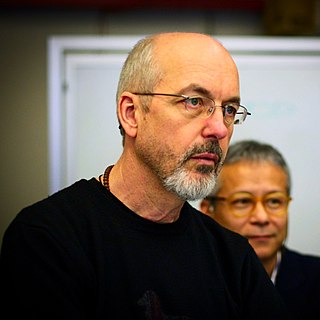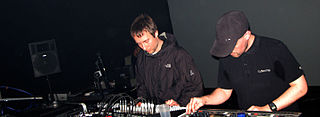A Quote by Paul Saffo
As recently as the '70s, people were forced to see information that they didn't agree with in newspapers and the like. Now there is so much information you really can build your own walled garden that just has the stuff that reinforces your view. I think it applies to all of us. People are really going into these separate camps, and that's the big social challenge in this age of too much information. How do we crack that and create a common dialogue?
Related Quotes
I don't think we should have less information in the world. The information age has yielded great advances in medicine, agriculture, transportation and many other fields. But the problem is twofold. One, we are assaulted with more information than any one of us can handle. Two, beyond the overload, too much information often leads to bad decisions.
If you share information widely, but you present that information in ways that fits your own view, you're actually still misrepresenting. So instead what you should do is figure out ways to build systems that allow people to experience and classify their information in ways that are meaningful for them.
I think we are definitely suffering from an information overload, but I believe that there is going to be better and better ways of organizing that information and processing it so that it will enhance your daily life. I just think that technology and information, it's overwhelming at the moment, but it's really going to make life better.
Normally if you add information to information, you have more information. In case of my art, I destroy information, I would say, because the image is disturbed by the writings. In a way, they become pure imagery. For me it's really fun because it's an idealistic approach to images, to just play around with information and see what's happening.
I think that because of YouTube, because of MySpace, because of the digital domain that we have on the Internet, the younger generation is much more open to information. I think it's so much easier for them to gain information and trade information, and they have become more aware. In some cases, more aware than their own parents and adults, as to what's going on in the world. I find that really intriguing and interesting, and I think there is a brewing of a whole new generation of activists coming.
Fifty years from now I don't think optical realism is going to be an issue in visual communication any more. Experience is so much richer than light falling on your retina. You embody a microcosm of reality when you walk down the street - your memories, your varying degrees of awareness of what's going on around you, everything we could call the contextualizing information. Representing that information is going to be the main issue in the years ahead - how the world meets the mind, not the eye.
What really interests me, on a deeper level, is how our information is coming to us in some kind of messed up way that is making us idiotic. I don't think we've become more idiotic than we always were, but I think the information transfer is funky. The shorthand of it is that social media is making us mentally insane.
Information wants to be free.' So goes the saying. Stewart Brand, the founder of the Whole Earth Catalog, seems to have said it first.I say that information doesn't deserve to be free.Cybernetic totalists love to think of the stuff as if it were alive and had its own ideas and ambitions. But what if information is inanimate? What if it's even less than inanimate, a mere artifact of human thought? What if only humans are real, and information is not?...Information is alienated experience.
Years ago, it was easier to make new things than it is now. The weight of experience weighs heavily, and the expectations; everybody wants to see something they haven't seen before. Now, with social media, with too much information, with the speed of information - all that is making it harder and harder to realize the objective.
The information that was contained in a cathedral was based upon a common culture - a common Christian culture - and the elements were chosen for a common symbolic meaning. Someone who knew everything that was represented in a cathedral had a sort of encyclopedia - you can indeed call it that - but it was a selective encyclopedia, like encyclopedias back when they were books and the people writing them were supposed to be specialists in their field. I think today the problem is that people don't know how to choose between different kinds of information.



































